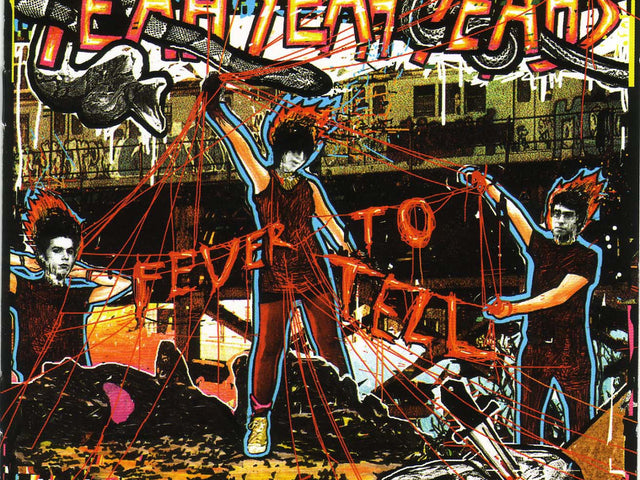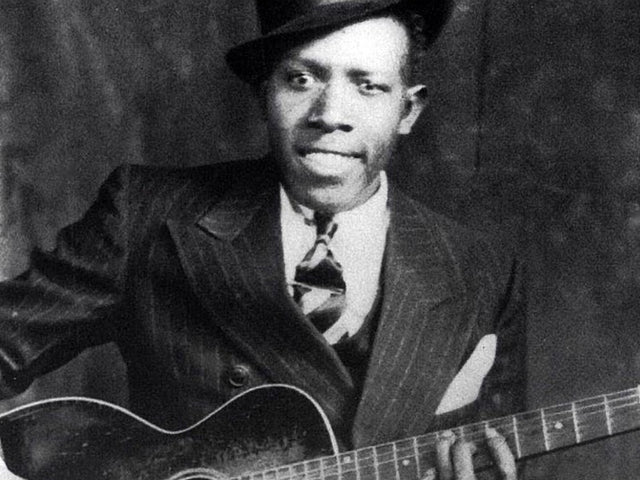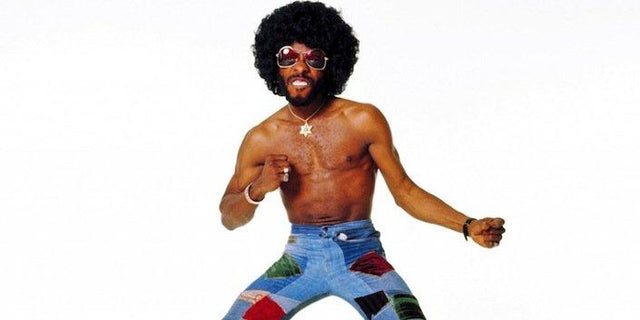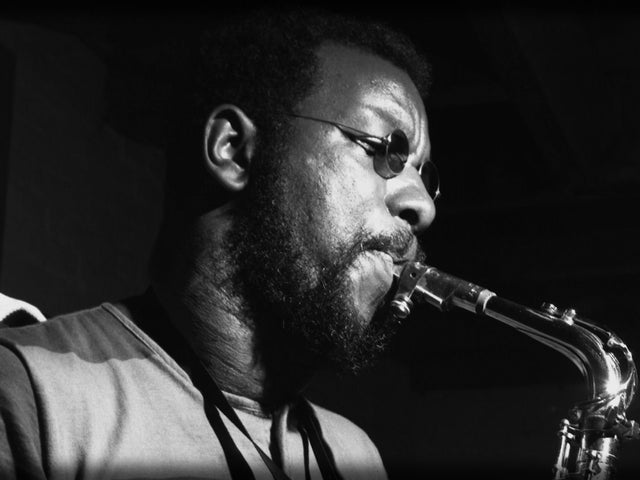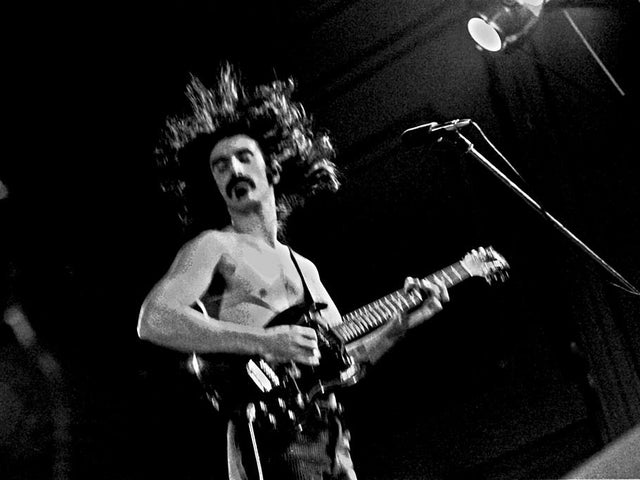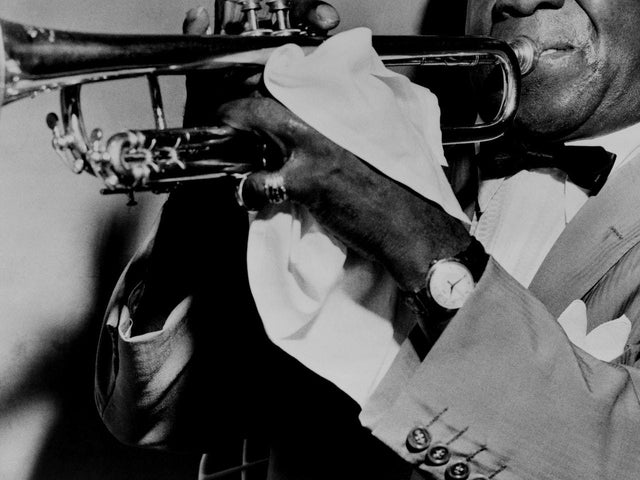当硬核朋克音乐场景在1980年代初期开始在美国建立时,它赋予了一群具有前瞻性思维的年轻人组建乐队、编辑小型杂志和创办唱片厂牌的力量,以代表这种在他们身边悄然兴起的新兴且毫不妥协的音乐形式。那个时候,记录他们当地场景的小众唱片厂牌包括南加州的Epitaph Records、中西部的Touch & Go、波士顿的X-Claim!以及可能是最重要的华盛顿D.C.的Dischord Records。由Ian MacKaye和Jeff Nelson创立——他们是首都最早的两个硬核乐队Teen Idles和Minor Threat的成员——该厂牌有责任奠定了许多独立唱片公司至今仍遵循的道德基础,因为他们坚持DIY原则和将表达置于利润之上的信念。
除了坚持严格只发行华盛顿D.C.地区的乐队并保持他们过去38年的商业模式外,他们还通过将最初的喧闹快速规则的精神扩展到各种未知领域,成功推出了惊人的数量的优秀唱片。唱片公司还无意中创立了朋克“情绪”(emo)分支,发行了如Rites of Spring和Embrace等乐队的专辑,同时还推出了Shudder To Think、Marginal Man、Rain Like The Sound Of Trains、Beefeater、Slant 6、Lungfish、El Guapo等独特乐队的专辑,数百张专辑无意间定义并解构了这一品牌仍在展现的历史中的流派。
深入剖析Dischord的庞大目录并将其缩减至10张必听唱片是一项非常艰巨的任务。但经过反复思考和无数杯咖啡后,我想提出一份由该厂牌的先驱和他们的音响后代共同开辟的新领域中的里程碑组成的列表。
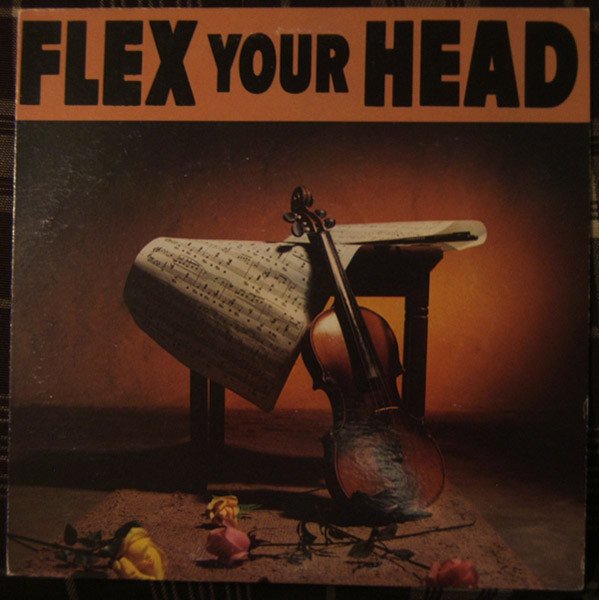
Various Artists: Flex Your Head
In the early stages of the American Hardcore Punk scene, regional compilation albums were passed around almost like business cards in order to establish a presence on the flourishing national scene while also displaying the distinctions in sound from town to town. Released in early 1982, D.C.’s entry into the national fishbowl was Flex Your Head, a 32-song, 11-band collection which provided a vivid snapshot of the scene in the nation’s capital, despite how rapidly it was developing. For example, the first three bands presented on the album—The Teen Idles, The Untouchables and the Henry Rollins-fronted State of Alert—were already long broken up by the time the compilation was released. And technically, even the legendary Minor Threat were broken up for a spell at the time of Flex Your Head’s release. But even without the aforementioned units, the compilation showcases the wide range of styles being explored within the confines of the genre; from the British punk-inspired Iron Cross to the unconsciously Avant Garde Red C. If you’ve never heard Flex Your Head, do yourself a favor and give it an ear. I think you’ll agree youthful raw invention has never sounded so glorious.

Minor Threat: Minor Threat
When Minor Threat put out their initial two seven-inch EPs back to back in 1981—the self-titled eight-song EP as well as the five-song In My Eyes—they were nothing short of a warning shot that a new form of punk was being assembled, which held onto to the musics’ anger but ratcheted up the speed while tying in a youthful intent. After pressing 8,000 copies of both records combined in a scant two years, the band decided to release both of them on one handy-dandy 12-inch in 1983. If the lyrics to pro-sobriety songs such as “Straight Edge” or “Out of Step” do not display the band was coming from a whole new school of thought, maybe the dynamics and complexity of the tunes will prove it to you. Either way, these songs will forever boil the blood of anyone young or old with a conscience and a pulse.

The Faith/Void: Split LP
Another unique thing brought to the table by Hardcore Punk was the idea of releases split between two bands. It seemed if two groups had too much material for a seven-inch EP and not enough for a full length, the issue was solved by combining forces to release one kick-ass LP which gave you more bang for your buck by introducing you to two bands rather than just one. At a time when Hardcore punk bands were starting to go through the motions of what some critics would deem “generic thrash,” Void provided something completely alien from the proceedings. With their guitarist Bubba Dupree—undoubtedly the Hendrix of D.C. Punk—the band gave up 12 songs of wonderfully misshapen psychedelic Hardcore angst that still boggles minds to this day. On the other side, The Faith—fronted by Dischord co-founder Ian MacKaye’s brother Alec—always gets a bum rap from those lured to the record by Void being namechecked by hip types. And yeah, what they dished out might not be as gnarled sounding as Void, but it is potent in its venomous and spirited delivery via tracks like “What’s Wrong With Me?” “You’re X’ed” and the remarkably disorienting closer, “In The Black.”

Rites of Spring: Rites of Spring
When the ’80s hit their halfway mark, many of the pioneers and early fans of the Hardcore scene wondered how far you could take a sound that was already repeating itself so early on in its inception. The answer to this dilemma for the D.C. scene was forming bands which retained the untreated execution of the earlier bands, erased the macho posturing and presented something more melodic. Out of the cannon of albums Dischord released at the time which followed this trajectory by bands like Embrace, Beefeater and Grey Matter, the 12-song full-length from Rites of Spring from 1985 perfectly exemplifies this execution, with its jangly guitar sound combined with Guy Picciotto’s unhinged vocals and introspective lyrics. I will begrudgingly call this record the beginnings of what would later be termed “Emo-Core,” but one listen to it will reveal it to be so much more than that.

Dag Nasty: Can I Say
While the rest of his local scene moved into different musical directions, Minor Threat guitarist Brian Baker felt that maybe people still wanted something from D.C. that maintained the fast and powerful sound the area was known for not that long ago. So, in 1985, he formed the band Dag Nasty, which successfully walked the tightrope of utilizing the tight-and-fast intricacies of his previous band without presenting it as a too-soon revival show. Recorded with the bands’ second vocalist Dave Smalley—formerly of the burly Boston Hardcore unit D.Y.S.—Can I Say sounds like the full-length Minor Threat never got around to committing to tape with Smalley’s earnest vocal delivery on tracks like “Justification” and “Never Go Back” still managing to raise the hackles all these years later.

Soul Side: Hot Bodi Gram
If any band represented the second generation of D.C. natives who learned from the trailblazers before them, it would be Soul Side. Formerly known as Lunchmeat, the band originally ticked all the boxes of a young band from the area in the late ’80s with their highly political and pointed lyrics and a booming bass sound inspired by dub reggae. But during a three-month long tour of Europe in 1989, the band recorded Hot Bodi Gram, their only full-length for the label and quite a departure from their previous vinyl outings. Apparently recorded in a fug of dope smoke in Holland (surprise! surprise!) it comes off almost intentionally vague lyrically, while guitarist Scott McCloud’s hazy, grating guitar sound would conjure up the notion of Sonic Youth if they were raised in the district. Capped off by a feedback laden rendition of Patsy Cline’s “Crazy,” Hot Bodi Gram is most certainly one of the most adventurous albums in the Dischord catalog and, sadly, out of print in the vinyl format.

Fugazi: Repeater
From their start in 1987, the Ian MacKaye-led Fugazi was a force to be reckoned with on every level. Musically, they were a dizzying reimagining of the members listening habits which included second wave U.K. punk like The Ruts and The U.K. Subs, Fela Kuti, local Heavy Metal gods The Obsessed and the odd early Queen tune or two. Philosophically, they held fast to the notion that music should be available to people of all ages for an affordable price. On their debut full-length, these influences and concepts weave to produce a startling listen; the audio equivalent of a roller coaster ride careening down the tracks at a breakneck pace. Word-wise, songs like “Greed,” “Blueprint” and “Merchandise” spell out why the band was not to be fucked with in regards to their intent. Or as the chorus in the latter song states: “We owe you nothing / You have no control.”

Shudder To Think: Funeral At The Movies
By the time the ’90s crept up, it was accepted in the underground that Dischord were musically far removed from the stubble-headed aggro they broke ground with almost 10 years earlier. However, it still did not prepare some for Shudder To Think when they emerged on the label at the time. The band's’ first two full-lengths, Curses, Spells, Voodoos, Mooses (1989) and Ten Spot (1990) exhibited a driving and distinctively dreamy pop sound that made some people wince in confusion; myself included. But once Funeral At The Movies was released in 1991, it was impossible not to give in to their infectious ways. Buoyed by the lilting vocals of Craig Wedren, the seven-song12-inch EP—which included a cover of Jimi Hendrix’s “Crosstown Traffic”—is possibly the most mystical release on the label, providing a headrush of ethereal sounds just as compelling as any shoegazing unit from across the pond who were getting hyped up at the time.

Lungfish: Feral Hymns
With 12 releases on the label dating back to 1992, the Baltimore-based quartet Lungfish are certainly Dischord’s longest-running concern. Although it’s difficult to choose one album from their vast catalog, I’d say 2005’s Feral Hymns encompasses all the elements which has the band both retaining and gathering a cult following to this day. Hypnotic and heavy like a Teutonic version of Black Sabbath and accompanied by vocalist Daniel Higgs’ warbly howl, the 10 songs that make up this album are the perfect soundtrack for a staring contest with your ceiling while flat on your back, soaking up the aura of your carpet.

The Messthetics: The Messthetics
If further proof is needed about the longevity of Dischord’s streak of stellar albums, may I please direct you to their latest release by the trio The Messthetics. Made up of the rhythm section from Fugazi (Bassist Joe Lally and drummer Brendan Canty) and avant Jazz guitarist Anthony Pirog, the band present nine instrumental tracks that brood with the same fiery musical tension and strength King Crimson exhibited on their last two albums from the ’70s, Red (1974) and USA (1975). And even though there is no doubt all three artists here most certainly have “chops,” they are presented with a modesty learned in the basements and squats of punk and not on the floor of a music instrument chainstore. Do yourself a favor and dig into this album to hear what this influential label is presenting in the here and now.
Tony Rettman is the author of three highly regarded books on the history of American Hardcore Punk: Why Be Something That You’re Not: Detroit Hardcore 1979-1985 (Revelation Records Publishing, July 2010), NYHC: New York Hardcore 1980-1990 (Bazillion Points, December 2014) and Straight Edge: A Clear Headed Hardcore History (Bazillion Points, November 2017) His writing has appeared in The Village Voice, Vice, The Guardian, The Wire and Red Bull Music Academy.
